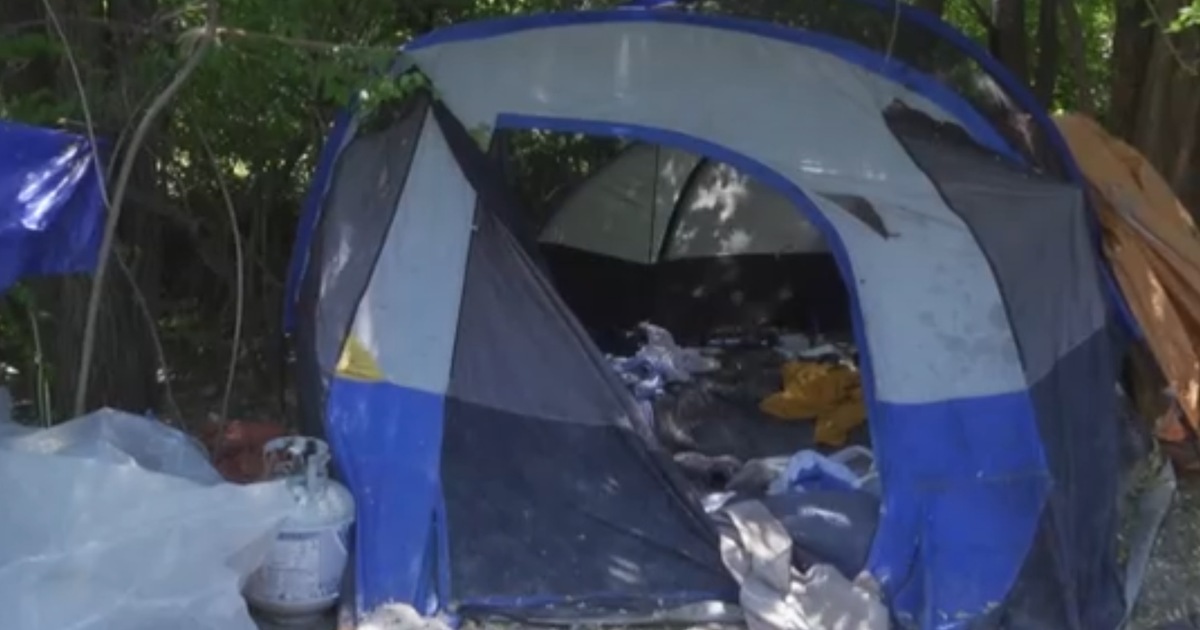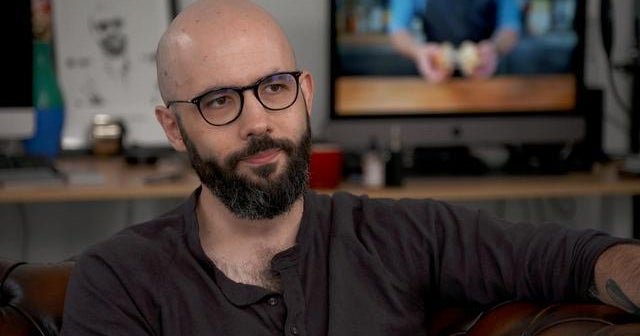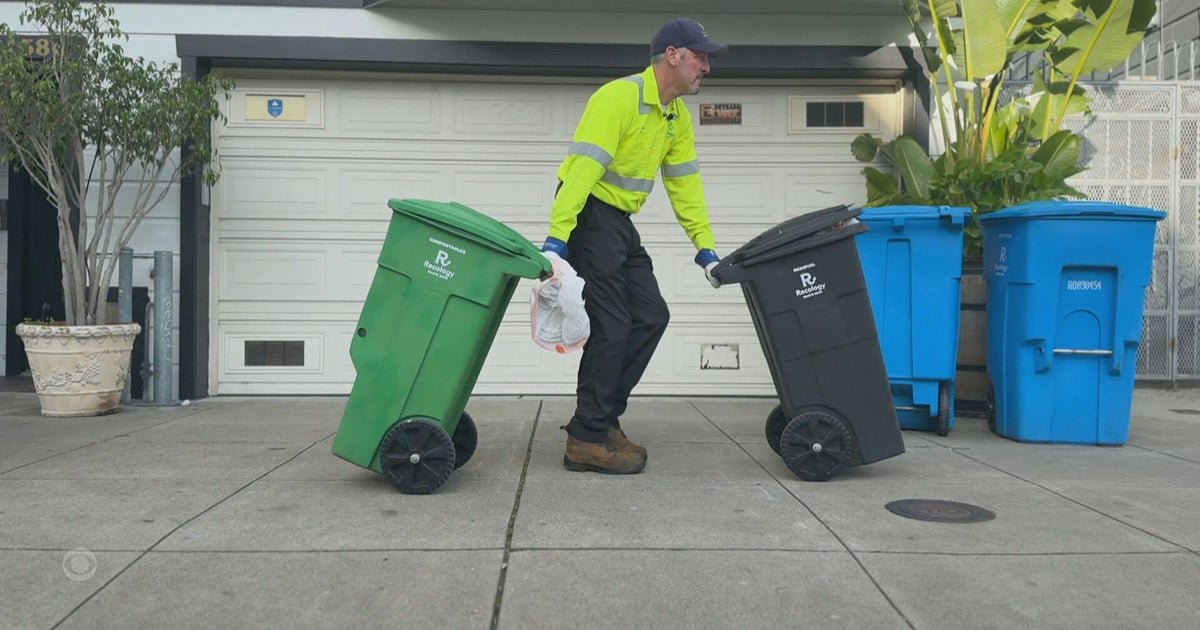[ad_1]
Kansas City, Missouri — Many consider a stretch of road next to train tracks and the Missouri River the most dangerous area in Kansas City, Missouri. But for years, couple Smoke and Serena have called it home.
“Violence, oh yeah, I guess it just, it brings out the worst in you, man,” Smoke told CBS News. “Down here, it pushes you to a whole other limit.”
Their tent is just off a dirt track nestled in a thicket of trees and bushes near downtown Kansas City. The area is filled with encampments that straddle either side of the tracks. Most tents are surrounded by trash, some of it collecting for years. Much of it is discarded items used to cook dinner, keep warm, or consists of piles of scrap metal that is collected and sold for cash.
More than 771,000 Americans experienced homelessness at some point in 2024, compared to a little over 653,000 in 2023, an increase of about 18%, according to a report from the Department of Housing and Urban Development.
According to a 2023 HUD report, 95.7% of individuals experiencing chronic homelessness in the Kansas City metropolitan area were unsheltered, the worst rate of any major U.S. city. It’s a challenge Josh Henges, homelessness prevention coordinator for the city of Kansas City, is trying to solve.
“We’re trying to build something here…and the goal is to get people out of this,” Henges said.
At Henges’ side are his street outreach coordinators Kevin Morgan and Nick Allen. Allen is the point man, he works to build trust, a crucial first step in getting people off the streets.
“We are set to double our homeless population in less than four years because we’re not doing this right,” said Henges, who is seeking to change that trajectory. “…Homelessness is the most solvable problem America has chosen not to solve.”
Henges’ solution would involve building “a system that delivers people out of homelessness, no matter where they fall in, that is what you have to do.” He calls it “functional zero” — aiming for anyone who becomes homeless to be back on their feet in 30 days.
“There’s enough money currently in this system to solve this problem, but it is not coordinated,” Henges said.
He wants to direct churches, aid organizations and shelters to align their resources in an effort to get people a place to stay while supporting their needs. It would be similar to the services provided at Shelter KC, a local rescue mission.
“If you just put in affordable housing, and you don’t deal with the core issues of addiction and mental health, then that’s not gonna end homelessness,” said Eric Burger, executive director of Shelter KC.
Burger wants to ensure people first feel safe and seen before helping them become successful.
“Many of our people have never had healthy relationships,” Burger said. “So you’re connected into a good workplace, good housing, a support system of a church, a recovery group.”
He says it’s not just a “holistic approach, but it’s also: how do we have relationships with people.”
Smoke and Serena are getting a new home in a different neighborhood through a federal voucher program, and not a moment too soon. Their previous tent burned down.
“It’s just gonna be nice, opening and closing the door,” Smoke said. “‘Hey, we’re home.’ Yeah, let’s just keep doing it, you know? Hey, we’re home.”
[ad_2]



